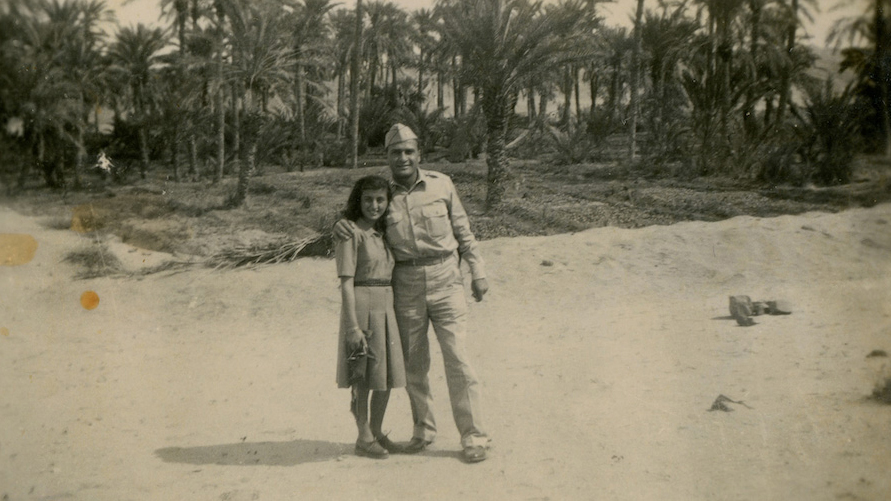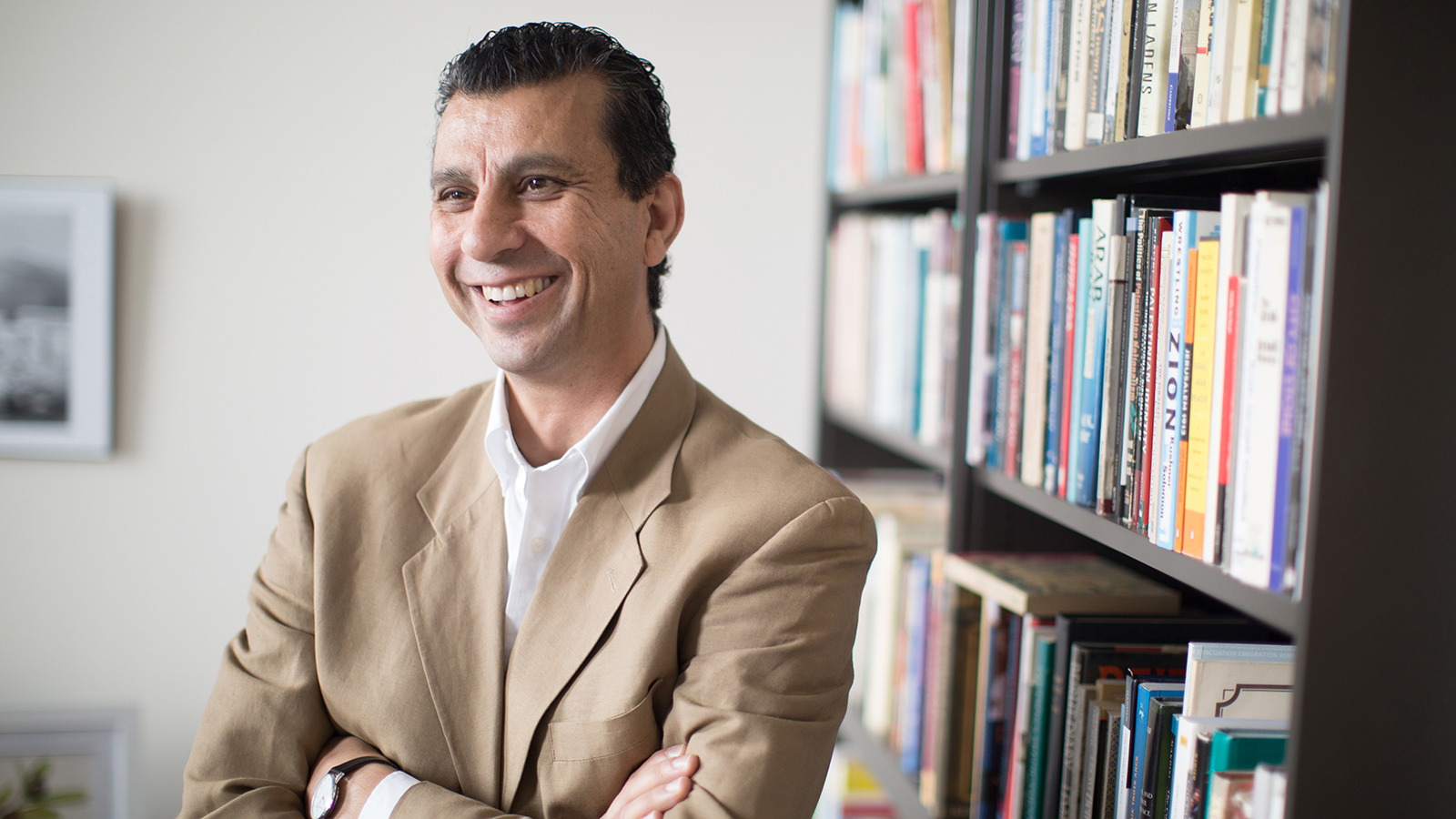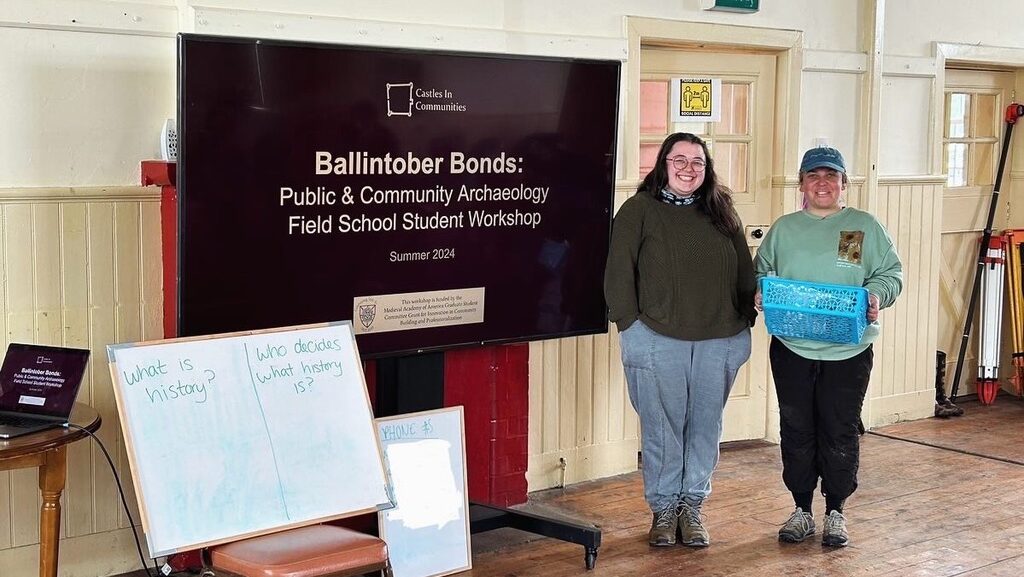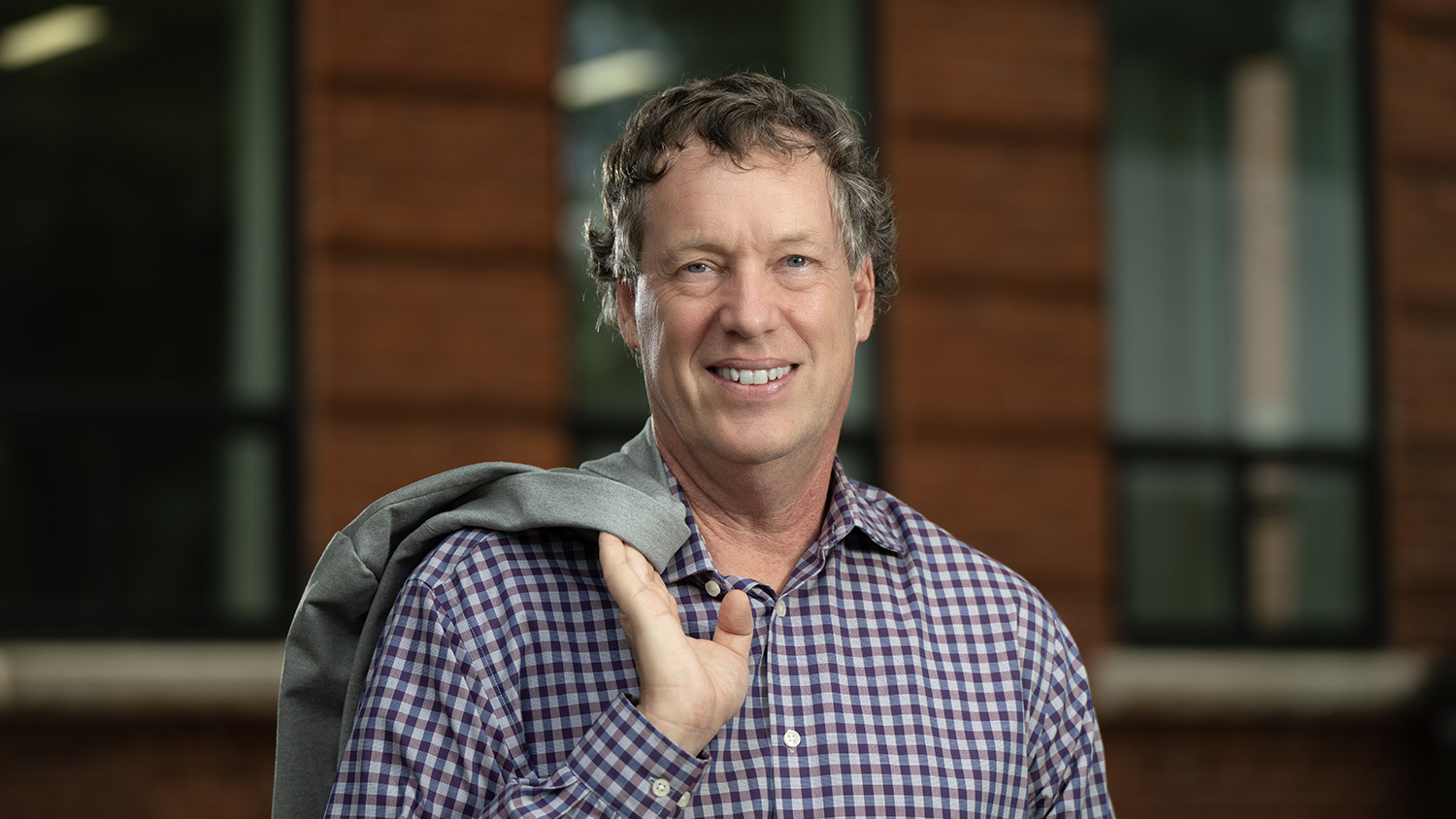Transformative Gift Endows Khayrallah Center for Lebanese Diaspora Archive

The College of Humanities and Social Sciences has received a $2 million gift to expand the resources of the Khayrallah Center archive, deepening its global impact on scholarship and community engagement. This gift strengthens the Khayrallah Center and its pioneering mission to document and preserve the history of Lebanese immigrants worldwide and creatively share their stories through innovative technologies and award-winning projects.
In a heartfelt display of generosity, Jimmy Nassour and Dina Tebcherany, MD, donated the gift to endow the archive and name it as the Hoda Z. Nassour and Herbert R. Nassour Jr., MD, Archive of Lebanese Diaspora, in honor of Nassour’s late parents.
“I am deeply grateful to Jimmy and Dina for providing this transformative gift. With this funding, we can continue to develop exciting new initiatives, including our groundbreaking AI archival technology that will radically transform research in Arabic,” said Akram Khater, Khayrallah Distinguished Professor in Lebanese Diaspora Studies, and director of the Khayrallah Center, and professor of history. He added that this gift also allows the center to continue expanding and developing its archival holdings and innovative archival technologies at a more rapid pace.
“With this funding, we can continue to develop exciting new initiatives, including our groundbreaking AI archival technology that will radically transform research in Arabic.”
Nassour’s father, a Lebanese American physician, was born in Texas and attended medical school at the American University of Beirut. His mother, a Lebanese immigrant, worked alongside her husband in their medical practice. Nassour said he grew up listening to his father’s stories of Lebanon and his mother’s experiences of immigration and cultural devotion, which grounded him in a heritage he continues to cherish.
“This gift reflects not only our love for them but also our shared belief in the power of memory and storytelling,” Nassour said. “My wife and I envision the archive as a dynamic, evolving space that honors the history of the Lebanese diaspora, fosters connection, and serves as a lasting resource for generations to come.
“We are especially proud that it will create a state-of-the-art digital archive — one that will not only safeguard history but also make it accessible globally, inviting engagement from students, scholars and communities across borders.”
Since the center’s founding a decade ago, its archive has grown to include 115 discrete physical and digital collections. These range from oral histories, books, and reference materials to images, newspapers, documents, letters, audio recordings, manuscripts, personal papers, and memorabilia. Each year, about 15,000 users make 100,000 visits to the archive.
With this gift, the center will complete its groundbreaking AI archival technology. The new tool will revolutionize access to Arabic archives in general and those of the Lebanese diaspora in particular. It will transform handwritten Arabic documents – letters, diaries, manuscripts, etc. – into searchable digital text, Khater said. Beyond making these archival documents easily discoverable, this project will also provide immediate translation of the Arabic text into multiple languages, including English, thus eliminating language barriers for all users and improving accessibility for researchers.
This donation, Khater added, will also help the center expand the archive’s collections to include new and vital materials from Central and South America and explore new technologies and opportunities.
The archive’s continued expansion aligns with the center’s broader mission of advancing scholarship and public engagement. “With the addition of new collections, technologies and partnerships, our archive will reach more people than ever before,” Khater said. “These new resources will not only deepen scholarly understanding of migration and the Lebanese diaspora, but also encourage broader public reflection on and engagement with the past. It will allow people to more easily connect with a central theme of the human story: movement and mobility”
Nassour added that expanding the archive offers the college and the center an opportunity to lead in elevating diasporic voices. It also provides insight into a vibrant but often underrepresented history — one that speaks to universal themes of migration, adaptation and contribution.
Nassour and Tebcherany have been dedicated supporters of the college and the Khayrallah Center. Previously, they funded a project documenting the history of the Lebanese community in Texas, a subject that resonates with them.
Jimmy Nassour is the managing partner of JLM Financial Investments, a private equity firm focused on mergers and acquisitions, asset purchases, and real estate development. He is also a Texas-based attorney and serves on the Khayrallah Center’s advisory board. Dina Tebcherany is a medical oncologist with Texas Oncology.
“We also want the archive to show that history is alive and built from personal narratives like those shared by my parents — stories that can shape hearts, minds and futures.”
For the couple, making this latest gift was an easy decision. “A gift is worthless unless it has someone to champion and manage it,” Nassour said, adding that Khater is that person for their contribution.
This gift, Nassour said, will ensure the archive continues to impact students, scholars and future generations. He hopes it will also inspire reflection, connection and discovery — instilling pride in personal histories, fostering inclusive scholarship and helping future generations see themselves in the past.
“We also want the archive to show that history is alive and built from personal narratives like those shared by my parents — stories that can shape hearts, minds and futures,” Nassour said. “And we want to ensure those stories are not only preserved but also celebrated.”
Looking ahead, Khater said, “Jimmy and Dina’s gift establishes a new endowment within the Khayrallah Center dedicated to the archive — its care, use and acquisitions— and is a critical first step toward our larger goal of raising $4 million to fully endow its annual operating expenses.”


